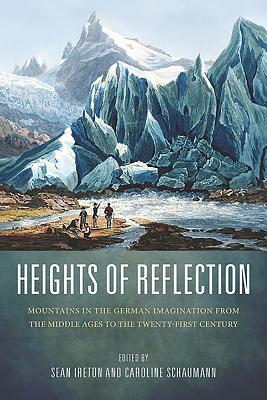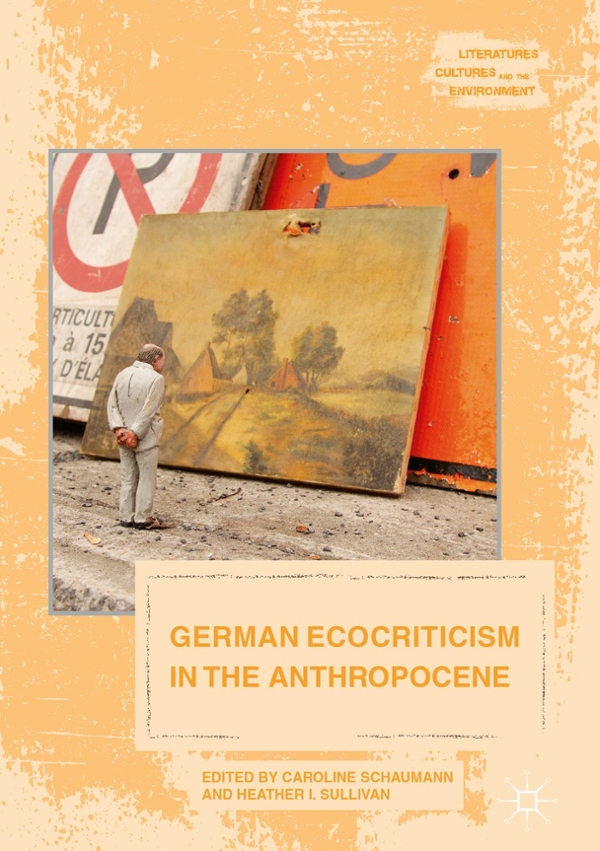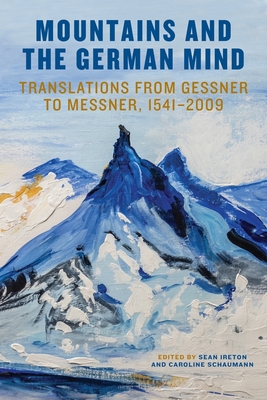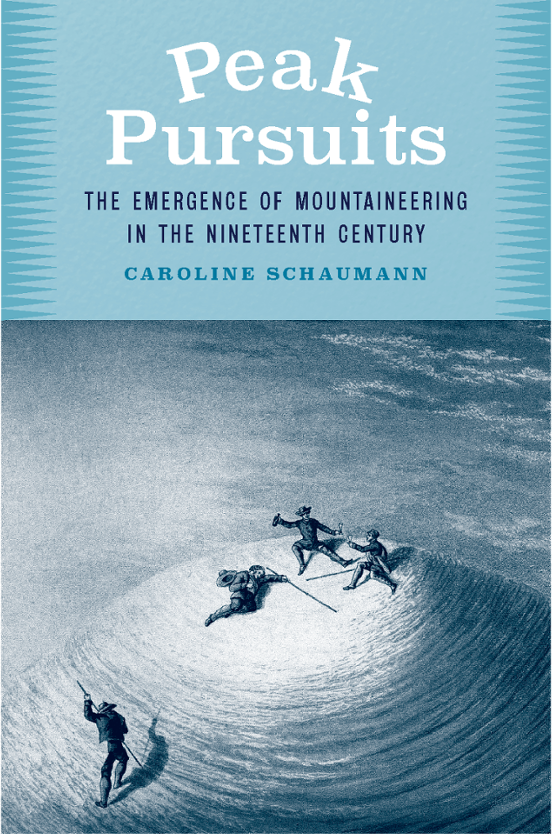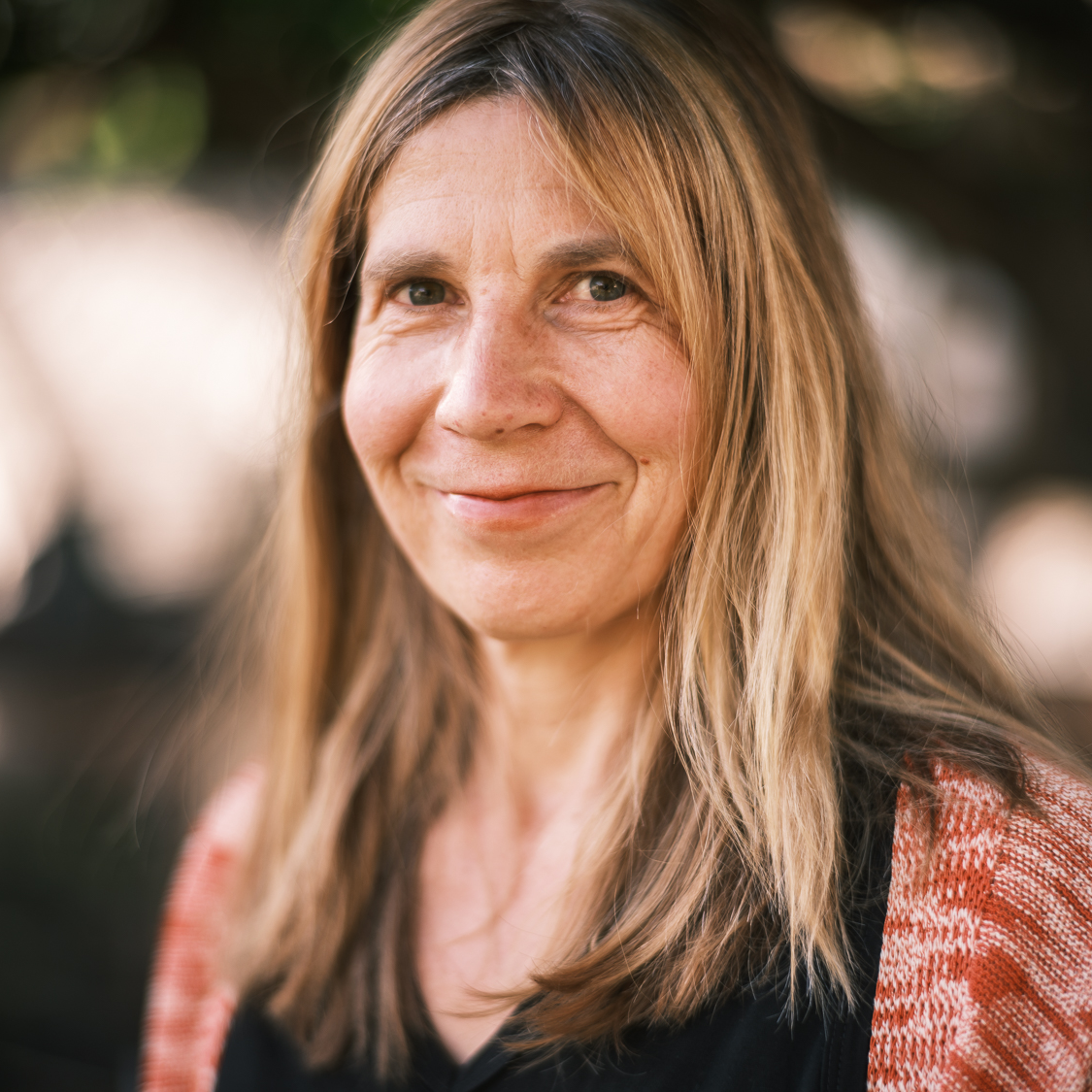Caroline SchaumannProfessor and Chairperson of German Studies
Office Hours
Tuesday 14:30-16:30 and by appointment
Education
- Ph.D., University of California, Davis
Biography
Teaching Fields: Contemporary German literature and culture, Nineteenth-Century Alpine Exploration and Mountaineering, Ecocriticism, the Anthropocene, German cinema.
A native of Berlin, Caroline Schaumann received her Ph.D. in German Studies at the University of California at Davis, with designated emphases in Critical Theory as well as Feminist Theory and Research. After teaching as a visiting assistant professor at Middlebury College, she joined the Department of German Studies at Emory University. She is the author of Memory Matters: Generational Responses to Germany's Nazi Past in Recent Women's Literature (Walter De Gruyter, 2008) that considers contemporary German literature and German-Jewish literature in the aftermath of the Holocaust with a specific emphasis on the changing discourse after German reunification. Schaumann held two DAAD Research Stay Fellowships and a Humboldt Fellowship for Experienced Researchers to complete recent research projects in Berlin and Potsdam. In 2018, she received the Robert B. Hascall Faculty Sustainability Innovator Award from Emory’s Office of Sustainability Initiatives. She was granted a Guest Professorship at the Leopold-Franzens-University of Innsbruck to research and teach in Germany and Austria during academic year 2024-2025.
Schaumann's current research focuses predominantly on ecocriticism and the environmental humanities, cultural histories of exploration and mountaineering, and the Anthropocene. Looking at a transnational dialogue within Europe that eventually crossed over to the Americas, her second monograph, Peak Pursuits: The Emergence of Mountaineering in the Nineteenth Century (Yale University Press, 2020) examines depictions of exploration in the Alps, Andes, and the Sierra Nevada. In a peculiar mixture of masculinity, sublimity, science, and suffering, European explorers created the vernacular of mountaineering as a promise of vicarious risk while making their mountain adventures marketable to an emerging and interested middle class. These nineteenth-century representations of exploration and mountaineering in the Andes, Alps, and Sierra Nevada inform our culturally constructed notions of nature, wilderness, and identity to this day.
This research also resulted in Mountains and the German Mind: Translations from Gessner to Messner, 1541-2009, a co-edited anthology (with Sean Ireton) introducing and translating key text from the German cultural history of alpinism (Camden House, 2020). The previous co-edited (with Sean Ireton) anthology Heights of Reflection: Mountains in the German Imagination from the Middle Ages to the Twenty-First Century (Camden House, 2012), examined the lure of mountains in German literature, philosophy, film, music, and culture from the Middle Ages to the present, with a focus on the interaction between humans and the alpine environment. With Heather I. Sullivan, she edited German Ecocriticism in the Anthropocene (Palgrave, 2017), an anthology gathering essays on both canonical and non-canonical German-language texts and films. In addition to these, she has published over thirty research articles on Alexander von Humboldt, mountain films, hybrid environments, the Anthropocene, and memory cultures.
Schaumann is an affiliated faculty with Jewish Studies, Film Studies, Environmental Sciences, and the Sustainability Minor and teaches an entire range of German and interdisciplinary courses at Emory, from freshman seminars and German as a second language to and advanced courses on German literature and culture, German film, and the sustainability core course.
Research
Books:
Monographs
(2020). Peak Pursuits: The Emergence of Mountaineering in the Nineteenth Century. New Haven: Yale University Press.
(2008). Memory Matters: Generational Responses to Germany’s Nazi Past in Recent Women’s Literature. Berlin: Walter de Gruyter.
Edited Books
(2025). Global Mountain Cinema. Co-edited with Kamaal Haque and Christian Quendler. Edinburgh: U of Edinburgh P. Forthcoming.
(2020). Mountains and the German Mind: Translations from Gessner to Messner, 1541-2009. Co-Edited with Sean Ireton. Rochester: Camden House.
(2017). German Ecocriticism in the Anthropocene. Co-edited with Heather Sullivan. In the series Literature, Cultures, and the Environment, edited by Ursula Heise. New York: Palgrave Macmillan,
(2012). Heights of Reflection: Mountains in the German Imagination from the Middle Ages to Twenty-First Century. Co-edited with Sean Ireton. Rochester: Camden House. In Paperback 2017.
Recent Peer-Reviewed Essays:
(2025). “‘Das Darwin stirbt aus!’: Judith Schalanskys Werke im Spiegel der Extinction Studies.” Text & Kritik, eds. Lilla Balint and Leonhard Herrmann. Forthcoming.
(2023). “Reframing the Bergfilm: Olivier Assayas’s The Clouds of Sils Maria (2014).” Colloquia Germanica 56.4: 359-77.
(2022). “Disease, Extinction, and Emergences in T.C. Boyle’s A Friend of the Earth and Margaret Atwood’s Oryx and Crake.” Co-authored with Heather Sullivan. Mensch & Mitwelt, eds. Jonas Nesselhauf and Urte Stobbe. Hannover: Wehrhahn. 81-98.
(2021). “Von der topographischen Karte zum 360° Panoramablick: Die Berg-Bilder des Horace-Bénédict de Saussure,” Bilder in Bewegung, eds. Patricia Gwozdz, Tobias Kraft, Markus Lenz. Berlin: De Gruyter. 269-82.
(2021). “Humboldtian Writing for the Anthropocene.” In: Deutschsprachiges Nature Writing von Goethe bis zur Gegenwart – Kontroversen, Positionen, Perspektiven, ed. Gabriele Dürbeck and Chrstine Kanz. Stuttgart: Metzler, 115-30.
(2020). “Chernobyl’s Emergent Landscapes in Narratives by Christa Wolf and Alina Bronsky.” Co-authored with Heather I. Sullivan. In: Gegenwartsliteratur Vol. XIX: Ecocriticism, 75-97.
(2019). “Tracing Romanticism in the Anthropocene: An Ecocritical Reading of Ludwig Tieck’s The Rune Mountain.” In: Romantic Legacies: Transnational and Transdisciplinary Contexts, ed. Shun-Liang Chao and John Michael Corrigan. London: Routledge, 195-212.
(2017). “‘Calamities for Future Generations’: Alexander von Humboldt as Ecologist,” In: Ecological Thought in German Literature and Culture, eds. Gabriele Duerbeck et al. Lanham: Lexington, 63-76.
(2017). “Hybrid Environments in the Anthropocene: Recent Fiction.” Co-authored with Heather Sullivan. Readings in the Anthropocene: The Environmental Humanities, German Studies, and Beyond, eds. Sabine Wilke and Japhet Johnstone. New York: Bloomsbury, 38-61.
(2017). “Speaking Stones: Material Agency and Interaction in Christian Enzensberger’s Geschichte der Natur.” In: German Ecocriticism in the Anthropocene, eds. Caroline Schaumann and Heather Sullivan. New York: Palgrave Macmillan, 165-82.
(2015). “Human and Non-human Agencies in the Anthropocene.” Co-authored with Gabriele Dürbeck and Heather I. Sullivan. In: Ecozon@ Vol. 6.1, 118-36.
(2014). “The Return of the Bergfilm: Nordwand (2008) and Nanga Parbat (2010).” In: German Quarterly, Vol. 87.4, 416-39.
(2014). “Weiße Phantasien: Reinheit und Schmutz in Texten von Luis Trenker, Heinrich Harrer und Hans Ertl.” In: Literatur für Leser, Vol. 14.2, 99-110.
(2014). “Humboldt’s Dirty Nature.” In: Colloquia Germanica, Vol. 44.2, 133-47.
